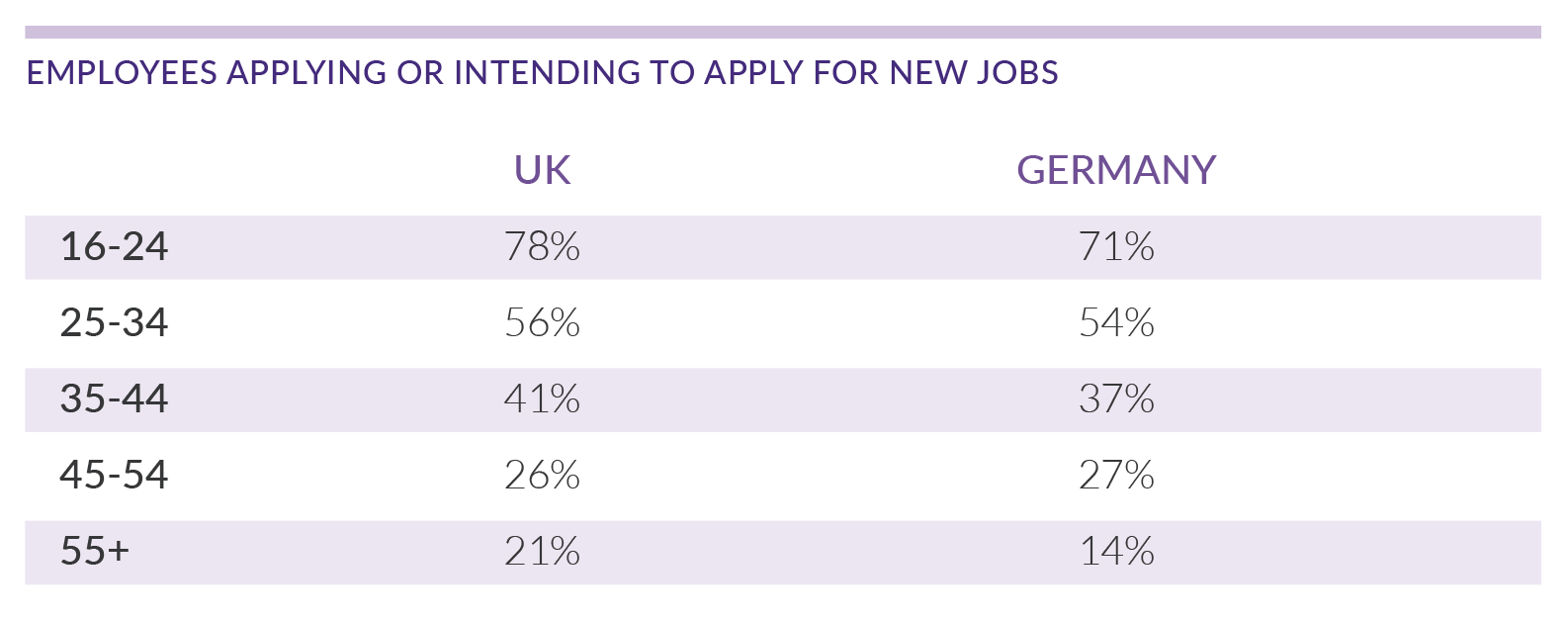Britain’s youngest workers (aged 16-24) don’t feel trusted or heard, and 78% of them are job hunting according to a new study* The findings should serve as a wake up call for British companies that have invested heavily in and wish to retain graduates, apprentices, and other young ‘rising stars.’ These findings should be especially concerning to those in industries which typically employ a high percentage of younger workers, from hospitality to tech, which are threatened by staff and skills shortages as the nation emerges from lockdown.
The study of 1,000 British workers found that while (58%) of workers describe themselves as very or somewhat engaged in their current job, while a significant proportion (29%) feel undervalued and this climbs to a third in the 16-24 age group. Employees in this group said the top ways to make them feel more valued were customer recognition (21%), senior leader recognition (19%); recognition in front of the company and financial reward were tied at 15%. This not only illustrates the importance of recognition itself to this age group, but the public visibility of that recognition.
Feedback frustration
Nearly half (49%) of respondents had been prompted for feedback by employers on how to improve the overall work experience. The most popular questions employers asked were on how to improve culture during the Covid crisis (45%) and post-pandemic hybrid work preferences (42%). Slightly lower percentages were solicited for feedback on issues important to younger workers like racial/social justice (37%) and diversity and inclusion (41%). Crucially however, 20% of respondents overall stated that their employers were not good at acting on feedback. So, while many respondents feel they are at least being asked how to improve the employee experience, there is still a long way to go to ensure feedback is being turned into actionable improvements.
Jon Maddison, EMEA Managing Director, Achievers commented: “Although the results of our survey may seem alarming, there’s still time for most companies to communicate with their people, then take steps to boost engagement and prevent churn. The sooner companies act to instil beneficial practices like listening, recognition, and reward into their cultures, the more likely they are to turn this situation around.”
Top tips for improving engagement
The report offers five tips for improving employee engagement, which are summarised below:
-
Focus on feedback: make surveys quick and easy for employees to complete using pulse surveys and online listening tools. This was shown to be especially critical during a rapidly changing situation like the Covid crisis, where employee attitudes shifted considerably in response to new developments and public policy decisions.
-
Say ‘thank you’ often: the goal should be to create a culture of recognition that is pervasive at every level and even extends outward to customers. Technology can help to democratise a recognition culture and ensure that it persists as we move to hybrid setups.
-
Value everyone’s views: the report data highlighted generational divides in employee sentiment. Young employees felt the most unsettled and unheard. Workplaces must find ways to ensure every employee feels welcomed, included, supported and connected, using technology to build employee-first cultures.
-
Deliver on diversity: More than a third of respondents (35%) do not feel a strong sense of belonging at work, which can cause innovation and growth to suffer. This insight should instigate a review of how employees are engaged, recognised, and made to feel connected to the company.
-
Pacify your presentees: presenteeism is a clear problem among a sizeable proportion of employees. This indicates a trust issue that companies need to address in order for workers to achieve work/life balance. This involves listening to employees’ concerns through pulse surveys and one-to-one meetings.
*Study from Achievers and Censuswide.









